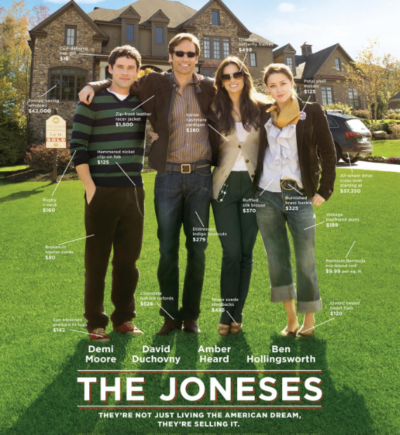Springtime 2025 – Hope Along a Lenten Path

We apologize for our lack of communication recently. The usual reasons of life’s surprise impositions and familial demands apply however but rest assured that all is well at The Cornerstone Forum. Gil Bailie continues at his writing desk, which frustratingly remains screened off from our inquisitive inquiries as to the subject of his next project. When speaking with him about this he continues to smile and insist on the necessity for an embargo on probing questions – the image comes to mind of a tight-rope walker attempting to keep his balance while focusing on the goal of a safe landing at the end. In the meantime we pray for Gil’s endurance and hope for the successful delivery of the next chapter in his authorship.
Widening our focus from Gil’s high-wire act to the stories and images brought to us daily via our digital globally interconnected devices we see chaotic and troubling scenes of economic uncertainty, civil strife, wars, terrorism – all the effects of sin and vice played out in the real world – not to mention natural disasters of various kinds. The temptation to despair and depression due to the corrosive and abrasive effects from the daily exposure to such scenes require us to make a concerted effort to displace such thoughts with the Lenten disciplines of fasting, prayer, and almsgiving.
Meanwhile, over the past year or so René Girard’s name has appeared in a wide variety of venues generating the following recent online offerings:
- Author Luke Burgis, entrepreneur in residence at Catholic University, has been one of the initiators of recent interest in Girard with his 2021 book Wanting: The Power of Mimetic Desire in Everyday Life.
- Burgis contributed a 2023 essay for the journal The New Atlantis, Culture War as Imitation Game, and hosted the 2023 Novitate conference dealing with mimetic theory attended by Cornerstone Forum executive co-directors Rico McCahon and Alex Lessard. As mentioned in our previous post the documentary by Sam Sorich, Things Hidden: The Life and Legacy of René Girard has also elicited substantial interest since its release at the end of last year.
- Recently, the Catholic Culture podcast featured novelist and friend of The Cornerstone Forum, Trevor Cribben Merrill in conversation with host Thomas V. Mirus that is highly recommended for its relevance to the work Gil Bailie and The Cornerstone Forum have been doing for decades.

- Also, the Gaudium et Spes 22 podcast featured another friend of The Cornerstone Forum, Fr. Elias Carr, speaking with Larry Chapp about Fr. Carr’s latest book, I Came to Cast Fire: An Introduction to René Girard.


Finally, we offer Alex Lessard’s following reflection on an example of Hollywood’s vision of mimetic desire…
“Put to death therefore what is earthly in you: immorality, impurity, passion, evil desire, and covetousness, which is idolatry.” Colossians 3:5 (RSVCE)
The Pauline assertion that covetousness is idolatry struck me anew when read at a recent Mass, and in the serendipitous way these things tend to happen, I came across the 2009 film “The Joneses” (R rated for brief nudity and drug use) again shortly thereafter. It immediately struck me that St. Paul & René Girard together provide the perfect interpretive framework for this movie.
In “The Joneses” a team of stealth marketers poses as a perfect family, moving into an upscale community to showcase luxury products and create artificial desire among their neighbors. Their mission nicely illustrates Girard’s mimetic theory, which, as readers of this newsletter well know, proposes that human desire is not autonomous but imitative – we want things because others want them. The Joneses weaponize this human tendency, deliberately modeling desires for their ever-aspirational neighbors and classmates, with fake father, mother, daughter, and son each targeting their own peer group’s openness to imitative influence.
The film’s affluent neighbors begin worshipping the Joneses’ seemingly perfect lifestyle, elevating material possessions to objects of devotion. This mimetic desire, of course, steps from the material occasions of envy into what he called “metaphysical desire” – with the influenced no longer wanting objects for their utility or status but for their perceived power to transform the self into the admired model. Like ancient idolaters who bowed before human-made statues, these modern consumers prostrate themselves before the altar of conspicuous consumption. The tragic suicide of neighbor Larry, who accumulates insurmountable debt trying to match the Joneses’ lifestyle, starkly illustrates a form of the violence that results from unchecked mimetic rivalry.
As the narrative unfolds, Steve Jones (David Duchovny) experiences a moral awakening, recognizing the spiritual emptiness and harm caused by their deception. A growing love for his fake wife accompanies his emerging empathy in a journey toward authenticity and genuine connection. Steve breaks free from the mimetic cycle, no longer choosing to be a model of artificial desire for others. The film ultimately delivers a poignant message about finding fulfillment neither through possessing what others have nor in a futile attempt to acquire their being through imitation, but through real relationships and genuine purpose – echoing both the Pauline wisdom and Girardian insight that peace comes only through the grace that allows us to transcend the rivalrous dynamics of mimetic desire.


